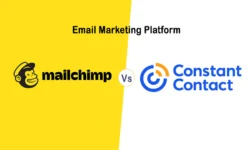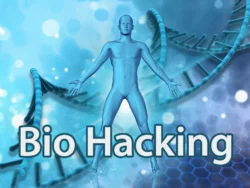The human brain simply does not know how to set priorities normally. It needs help.
We often deceive ourselves into believing that by doing something right now, we will take the time to do something else later. In fact, the flow of cases in this case is too captivating us. It seems to us that it is possible to quickly remove them from the list, and this is a distraction. And now really important things are postponed for tomorrow and beyond.
A recent study shows that our inherent bias of urgency persistently pushes the brain to devote time to a task that seems urgent rather than one that is much weightier but doesn’t look so urgent. In other words, our brains are so “concerned” about urgency that we prefer “objectively worse options objectively to the best,” the researchers write.
The study, conducted by Meng Chu, a professor of marketing at Johns Hopkins University Business School, focuses on time management at work and how consumers make decisions, but the findings go beyond the office and sales practices. A few years ago, she learned that some of her friends had been diagnosed with terminal cancer. Shocked by this, she began to think how little attention she pays to her own health and annual visits to the doctor. We so rarely take the time to get screened because we are very busy. But what are we so busy that we can’t take the time to visit a doctor that might save our lives? Or to communicate with close friends and family, which, according to many studies, makes a person happier throughout his life?
Chu and her colleagues tested the decision-making process in a series of studies, asking university students and online freelancers to choose between two assignments that were identical, except that one had a short deadline (10 minutes) and the other had a long one (24 hours). For the task with a longer deadline paid more, candy or real money, depending on the experiment.
It is important to note that the shorter deadline was far-fetched, as the description of the task indicated that it would take only three minutes and given 10 minutes. Thus, the short term created only the illusion of urgency.
However, more people chose jobs that were less paid and associated with a short deadline. In one case, participants opted for an apparent urgent task that brought $20 on an Amazon gift card, a non-urgent task that involved receiving $25.
No easy wins
Previous research has shown that looking at our to-do list, we prefer to take on simple tasks that can be accomplished quickly, because serious things are not fun. A more complex, less time-limited project, such as working on a relationship with a loved one or learning to play an instrument, often seems too distant or abstract. However, in the study of Chu, both tasks were equally easy and specific.
In their article, Chu and her colleagues describe a product theory that states that we find some things rare and therefore more desirable. If there are only four pairs of shoes left, which we look at online, we believe that they are in demand for a serious reason – perhaps they have a higher quality, or they are cheaper.
But in this study, “we ruled out the possibility of drawing such a conclusion,” says Chu. Short tasks, such as prescribing a series of letters backwards, could only be done once, and they did not give any other rewards, such as the ability to choose another paid task. They did not even bring vertigo from success.
The only reason why one task seemed more attractive than another was that it took little time to execute it. Apparently, that’s all it takes to keep our brains in a state of arousal that clouds our logic.
How can you handle it?
The New York Times, in reporting on the work of Chu, proposed “The Eisenhower Matrix” or “The Matrix of Urgency and Importance” as a tool to counter the bias of urgency. The idea behind it is attributed to the American president, after whom she is named. Eisenhower’s matrix allows people to allocate tasks across four sectors: urgent and important; urgent, but not important; not urgent, but important; and not urgent, not important.
Performance gurus strongly recommend this matrix, claiming that it helps them use their time more wisely. Chu says the matrix won’t help combat the prejudice of urgency. It’s so ingrained that we don’t even notice it. Matrix can’t protect you from emails and text messages if you respond to them before sorting cases as a priority. It won’t stop you from noticing the upcoming sale on the way home. Even before you remember to write “respond to mom’s message” in your Eisenhower matrix, you’ll answer it.
In addition, says Ju, two of these sectors don’t really need to worry. What is the problem of postponing work that is not important or urgent? Or take on tasks where there is both importance and urgency?
But there are tricks that will help to use bias to the benefit. For example, managers can break up large projects into smaller tasks with shorter deadlines to keep the team motivated, says Chu.
It also found that a timely reminder of the higher benefits of a non-urgent task persuaded people to act rationally and choose that option. That is, companies and executives who prefer healthy, engaged employees should be reminded more often about the long-term benefits of things like lunch and coffee breaks or the ability to stay at home when you are sick.
Another way to deal with bias, says Chu, is to become less busy, which sounds like the eternal question of chicken and egg. However, experiments have shown that people who consider themselves “busy” are more likely to choose a job they consider urgent simply to “get rid of it.”
Where are we heading?
Ultimately, our goal is to constantly question our choices, as well as to develop the ability to monitor our consciousness when sudden requests burst into it.
We are all able to take a step back, to turn attention to reactive thinking and its consequences. When you have a new task, first ask yourself, “Is this really urgent?” and then think not only about how, but also when it is better to do it.







